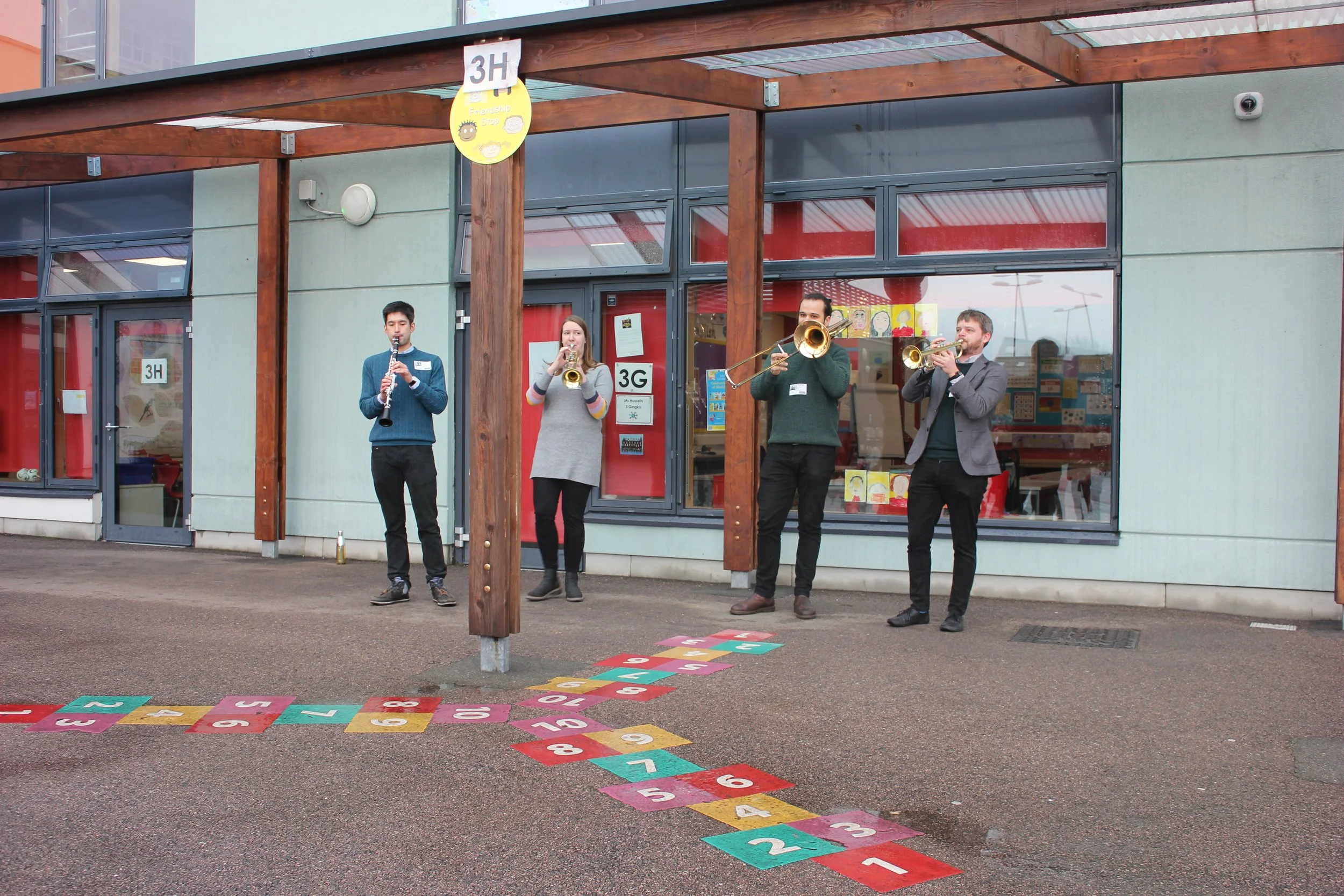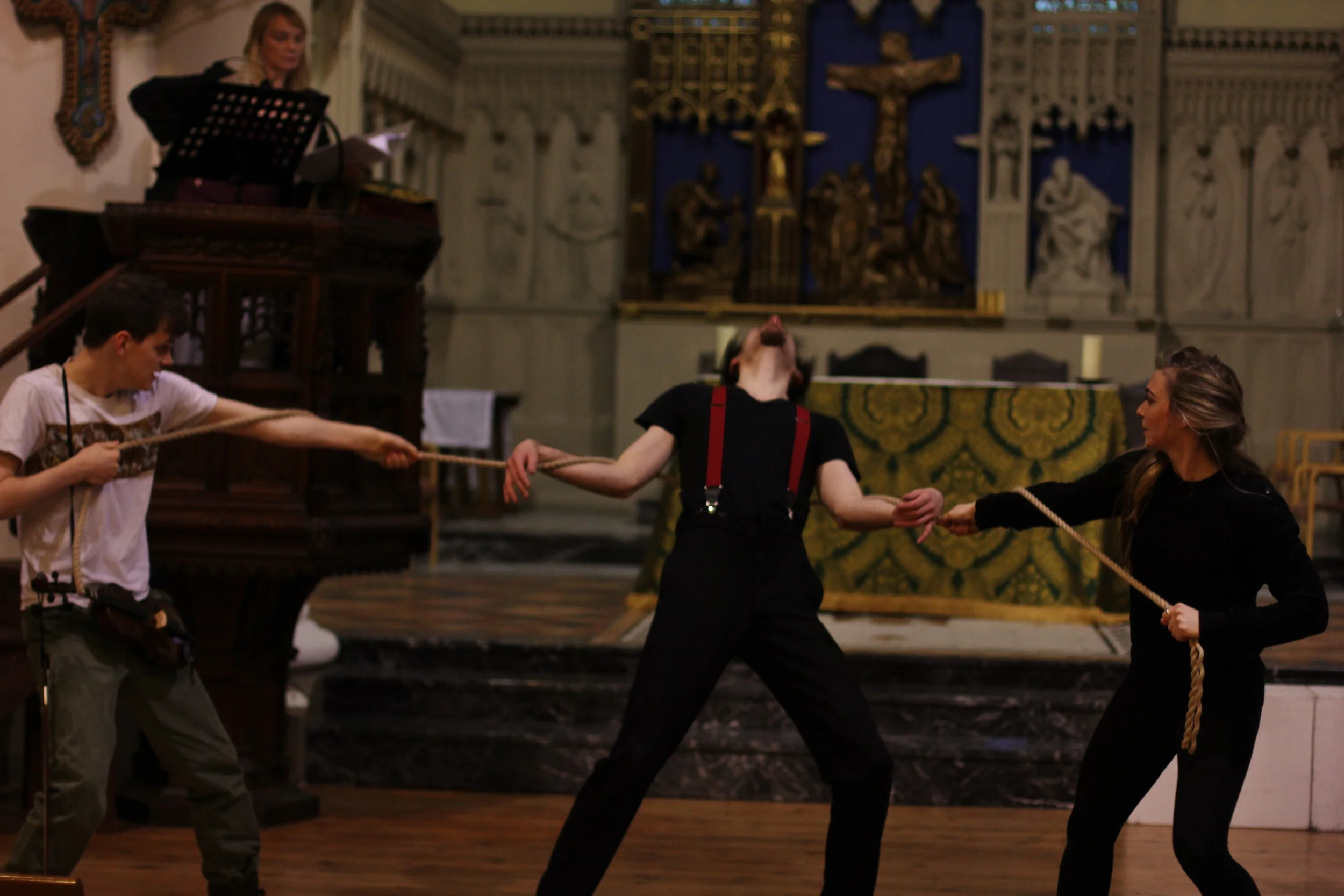At 7pm on the first Saturday night in July, over 100 community singers and musicians gathered, after weeks of preparation, to premiere A Fair Field. Families and friends of the performers, locals, activists, and music enthusiasts filled the Great Hall of the People’s Palace, where East Enders have been enjoying arts and culture since 1887. The concert celebrated the events of a piece of local history - the Matchgirls’ Strike of 1888, and over the course of the evening the audience journeyed through the events of strike, told in music, poetry, and passionate speeches.
“Grateful the event gave us an opportunity to celebrate this brave story of female solidarity together in east London. Very important strike considering the year and the poverty and societal pressures faced by women” - Audience Member
“It was fabulous. The ultimate local event: local history, local composer, local performers, iconic local venue” - Audience Member
In 1888 - only one year after the opening of the Great Hall, that 135 years later would echo with songs of the deeds of the Matchgirls - a group of girls changed the course of history. Most of the employees of the Bryant and May match factory in Bow were women and children, working gruelling 6-day weeks, often for 12 - 14 hour stretches. Wages were meagre, and the little that was earned was chipped away by harsh financial penalties for mistakes or infractions. Worse than the prospect of docked pay was ‘phossy jaw’, a cancer of the jaw caused by the particular chemicals, chosen for their attractively low cost, used in the matchmaking process.
This heavily weighted balance, that had so far existed in uneasy equilibrium, was unsettled by a magazine article exposing the discrepancy between shareholder profits and employee wages and working conditions. The article sparked protests in the factory, leading to a factory-wide strike, march, and growing interest from the press, Parliament, and the London Trades Council. Eventual negotiation with the owners of the factory led to a landmark victory. The demands of the Matchgirls - which, reasonably, covered the basics of respect, abolishment of fines, living wages, and working conditions - were unilaterally agreed to. This unprecedented success became influential in the development of the trade union movement, and thereby in the rights and protections that we all benefit from today.
“It is unbelievable that their working conditions were so awful. It was inspiring how they fought to improve their lives” - Audience Member
“I had a moment during the performance of just realising what an immense privilege it was to be part of sharing the story” - Participant
A Fair Field, composed by local East London composer Jonathan Pease, tells the story of these historic events, with witty lyrics and striking musical settings. Designed for the community singers and musicians who performed it, the piece gently challenged participants, giving them renewed confidence in their skills and a fierce sense of achievement - a feeling the Matchgirls’ may well have recognised.
“The music was outstanding and it was clear how much fun the participants and audience alike were having. It was a joy to see and experience!“ - Audience Member
East London Music Group produced and presented Striking Sparks: The Story of the Matchgirls in collaboration with The Matchgirls Memorial, a charity founded by the ancestor of one of the instigators of the events of the strike. The project was conceived in 2022, and A Fair Field commissioned the same year - and by the time of the culminating concert the subject matter couldn’t have been more timely, set as it was against a political backdrop of rail, university staff, and other industry strikes. Despite the troubled themes, the concert was enjoyed hugely by participants and audience members, proving once again, that music, art, and community continue to provide comfort, inspiration, and support in all times.
“The story teaches us a lot about human resilience, strength of the people of the East end particularly the poor at the time, the empowerment of women and has strong relevance for us today especially in the current social and economic climate. It's really important for people to know about the Matchgirls' story, particularly the children and young people who are our future” - Participant
“Really ambitious piece of work - but the participants seemed to really enjoy it, as did the audience. It was great to see the different groups working so well together to produce such a great outcome” - Audience Member
At East London Music Group, we were also proud to have been able to give local community choirs the floor in a professional and exciting concert hall. Aside from promoting awareness of the story, and its significance, we were keen that participants would feel inspired to continue making music in the community, and that their skills had been developed and improved in an enjoyable way. Being a catalyst for growth and promotion of music and cultural activity is integral to our work, so seeing East London Children’s Choir, which was formed for the purpose of performing in Striking Sparks, continue on its own path and collaborate with other choirs on the project is brilliant.
“I joined a choir because liked the idea of being part of something, but I particularly liked this project as the choir was part of a bigger project, and it felt like we were sharing an important message and doing good in the community” - Participant
Telling a story that is deeply baked into the history of Bow and Tower Hamlets; set to music by a composer born and raised in East London; and performed by musicians who live and work on the streets walked by the Matchgirls on their marches, was something special. That the events had consequences reaching so far beyond our small slice of London, and that the messages are so timely and universal, made this project a true example of the importance and place of music and arts in our communities.
To find out more about the details of the story of the Matchgirls, please visit our collaborators, The Matchgirls Memorial’s website, which hosts information, resources, and photographs.
To view all the pictures from the event click here. Photos taken by Matthew Johnson.
With thanks to:
Poplar Singers
Victoria Park Singers
Aldersbrook Choir
East London Children’s Choir
Queen Mary University of London Choir
Matchgirls Memorial
East London Community Band
Jonathan Pease




















